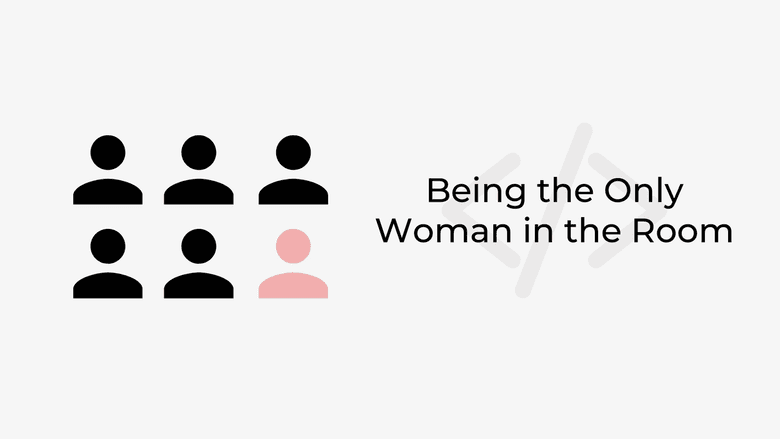Julia Weingart: Finding Her Voice at Microsoft
What the 1st year as an engineer at Microsoft is actually like, as told by Julia.

A Bay Area native, Julia Weingart grew up in the Silicon Valley area and has always had an inclination for math and science. Entering high school, she had the chance to pick an elective class, something she wanted to take for fun. So she followed her older sister’s advice and enrolled in the computer science class.
“I ended up really enjoying it,” she said. “That’s how I got into computer science, and I eventually decided to choose it as my major.”
Fast forward a few years. Weingart is now based in Seattle as a software engineer at Microsoft, and will be celebrating her one-year anniversary at the company in September. She is currently working on the Virtual Machine Health feature for Azure, the company’s cloud service, that is set to go into production by the end of this month.

“I was very lucky to be placed on a team with a product that’s really being built out,” she said. “Instead of fixing issues and bugs, I got to own my own piece of code and build it from the ground up. It’s part of the reason why I’ve enjoyed my time at Microsoft so much, because I’ve been working on a meaningful project, and been able to be a big contributor to it.”
Weingart began working at the big tech firm a few months out of college, where she majored in Computer Science with a certificate in Managerial Analytics. Perhaps what is slightly unique about her career trajectory is that she never interned at Microsoft prior to receiving the full-time offer. Instead, she had a variety of coding experiences at other companies, including stints at Stanford’s physics department, CME Group in Chicago, and Zillow in Seattle.
As a new grad in a company of 150,000 employees — more than a third of which are based in the Seattle headquarters — Weingart expected to be extremely overwhelmed. But to her surprise, the transition felt quite manageable. She especially appreciated the events Microsoft organized for new grads, such as the three-day retreat during which new grads didn’t go to work but instead went to all-day training.
“Those events were really helpful for me to meet people in a new city,” Weingart said. “Now I have friends to eat lunch with, and it feels a little bit more welcoming as opposed to when you don’t know anyone and there’s just thousands of people in the cafeteria.”
👉 Do you have what it takes to join Microsoft's team? Find out here.

Experiences in-office
One aspect that Weingart continues to struggle with is finding her voice in a male-dominated environment. When she first started working at Microsoft last September, she worked on a team with three other men. Since then, they have welcomed another woman onto the team. But for Weingart’s first four months at Microsoft, she was the only woman in the room for practically all of her meetings.

“Honestly, in the beginning it was pretty uncomfortable,” she said. “Everyone in the chain above me with my manager and up was all 100% guys, and it’s a long chain. I still only know one female manager out of all the teams I’ve seen or interacted with.”
Weingart gives credit to her coworkers at Microsoft for being incredibly warm and helpful, but it was still intimidating to be the only woman in the room, and also the youngest and least experienced.
For Weingart, it was difficult to share her opinions and contribute to discussions because she often felt overpowered by the other voices in the room. But as time went on, she began to speak up, and she started by asking questions.
“Just asking questions and saying something helps later when you have more formed opinions,” Weingart said. “It helps you become more confident and understand things better, and it also helps other people know you’re in the room and you have something to say.”
As the years have gone by and she’s gained more experience, it’s been easier for Weingart to speak up. But she definitely had to work at it. She encourages young women in engineering fields to try not to feel overpowered and to be more assertive. She also reminds them that while it’s normal to feel a bit uncomfortable in a male-dominated workplace, it’s also important to work somewhere you feel safe and respected.
👉 Read more about how women are left out of tech (and what we can do about it) here.
The impact of working virtually
Now that she’s working from home due to the COVID-19 pandemic, Weingart realized the virtual workspace has made it easier for her to voice her thoughts since no one has their video turned on during meetings.

“I felt a little more comfortable unmuting myself and talking when I didn't see the 10 other men on the call,” Weingart said.
Microsoft hasn’t announced a date for when everyone should return to the office, Weingart said. Before the pandemic, she would usually arrive at work on the earlier side, around 8:30 a.m. to 9 a.m. On most mornings, her team would get together for a “stand-up,” during which everyone would provide an update on what he or she was working on that day. Then, Weingart would spend the day at her desk coding and in another meeting or two.

Although she loves working at Microsoft, and specifically on Azure’s Virtual Machine Health feature, Weingart doesn’t foresee herself being a developer for the rest of her life. She really enjoys working with people, and hopes to explore opportunities that are more collaborative and less technical, whether that be at Microsoft or elsewhere.
Regardless of where Weingart ends up next in her career, the skills she’s gained and character she’s built from her first job out of college will come in handy. Being a female engineer isn’t easy, especially when you’re the only one on the team.

“Being a woman in the field, you’re in a sense a role model for other people to come,” Weingart said. “As a new grad coming to Microsoft, I would’ve felt much more comfortable having another female on my team, or at least in a sister team or management.”
Although Weingart didn’t have that role model for herself when she started at the company, she is now in the position to become that person for many young women as they look to start their careers as an engineer.
👉 Read more about the importance of role models in tech here.
Banner Image Credit: Julia's LinkedIn Profile, found here
The information provided herein is for general informational purposes only and is not intended to provide tax, legal, or investment advice and should not be construed as an offer to sell, a solicitation of an offer to buy, or a recommendation of any security by Candor, its employees and affiliates, or any third-party. Any expressions of opinion or assumptions are for illustrative purposes only and are subject to change without notice. Past performance is not a guarantee of future results and the opinions presented herein should not be viewed as an indicator of future performance. Investing in securities involves risk. Loss of principal is possible.
Third-party data has been obtained from sources we believe to be reliable; however, its accuracy, completeness, or reliability cannot be guaranteed. Candor does not receive compensation to promote or discuss any particular Company; however, Candor, its employees and affiliates, and/or its clients may hold positions in securities of the Companies discussed.
